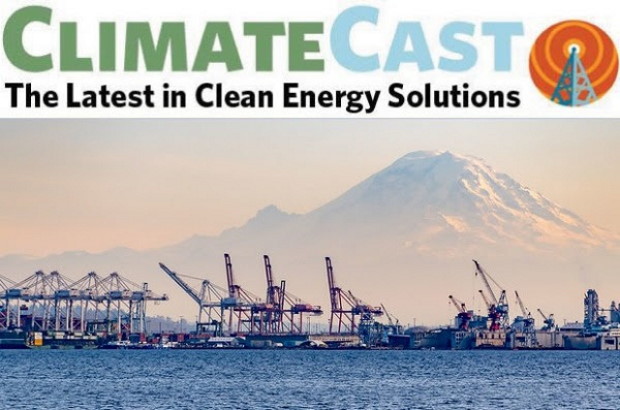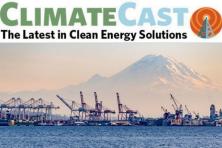WA and OR continue West Coast leadership on clean transportation with clean trucks
The Pacific Northwest continues a year of landmark climate progress by taking huge steps to regulate and reduce emissions from medium- and heavy-duty vehicles (trucks, buses, and vans) and passenger vehicles. Both Oregon and Washington announced their adoption of the Advanced Clean Trucks (ACT) Rule, the first states after California requiring truck makers to sell an increasing number of clean, zero-emission medium- and heavy-duty (MHD) vehicles in both states. Oregon also adopted the Low-NOx rule that will require new fossil fuel-powered MHD engines to significantly reduce dangerous air pollution and Washington’s Zero Emission Vehicle (ZEV) Program directs an increase in light duty zero emission vehicle sales starting in 2024. Notably four other East Coast states—Maine, Massachusetts, New Jersey, and New York—are also considering adopting the ACT rule this year. Together these seven states contain more than 20% of the national fleet of medium- and heavy-duty trucks, according to Federal Highway Administration data. Dozens of major companies, with sizable fleets, are also calling on states to adopt the ACT rule.
Real solutions and hope can’t be greenwashed
Two of the world’s top public relations firms have been raking in big money creating fossil fuel greenwashing campaigns and even creating fake grassroot organizations in support of hydrofracking and more. News of such anti-climate action can be difficult to process, but real climate action continues its dogged pursuit of change in different ways, big and small. Intense drought and wildfires have clearly brought real negative impacts to the West, but we've seen some positive adaptations too, including increased pay for firefighters, first time collaborations among states to reduce water consumption, and a return of prescriptive burns once used by indigenous communities. There was also progress in stopping more fossil fuel infrastructure this week in Oregon - along with the announcement of a new all-electric interstate bus route from Eugene, OR to Seattle, WA. And, other positive news showed strategically placed skylights can create passive solar heating and provide as much as 30% of winter heating needs. Finally, climate champions are set to have their day in court next year as several prominently climate liability cases will be heard.
Power generation, battery storage and microgrids
Renewable power generation is having another record breaking year and the International Energy Agency expects renewables to be “almost 95% of the increase in global power capacity through 2026.” This growth is being driven in part by high fossil fuel costs as well as emerging technologies. A team at M.I.T has created a new type of “flow battery” that can support better energy storage for renewables. Battery storage is also spurring collaboration and green jobs in Utah with a coordinated distributed energy resource (DER) program. In Canada, Indigenous communities like the Vuntut Gwitchin First Nation have been leading their own micro-grid renewable projects. In response to last winter’s devastating power outages where over 200 Texans died, the Texas Railroad Commission finally updated their regulations so gas producers can no longer opt out of low-cost weatherization standards fueling grid demand.
Let’s lift all the boats without raising the tide
Like shipping, the oceans have often been left out of current climate policy conversations but it is clear they are interconnected and need attention. While the US has committed to using offshore windfarms, other industries such as mining and tech are also exploring how to use the ocean for questionably “green” solutions. Additionally, international shipping (roughly 90% of global trade is shipped via sea) is creating serious problems for the health of our climate and the oceans. But change is coming with 22 countries, including the United States, committing to create zero-emission maritime routes. Also Maersk, the world’s largest shipping company, ordered new ships that run on sustainably produced methanol. Less in the headlines, but notable is this week marks the 2nd annual Black in Marine Science Week, amplifying the voices of Black scientists and inspiring younger generations.
One thing you can do
Climate change is already creating more extreme weather events like heat waves and flooding affecting crop harvest and driving up prices. Before the pandemic it was best to donate cash to food banks so they can purchase goods in bulk at cheaper prices but with supply chain issues those canned goods aren’t showing up when and where they are needed. One thing you can do is find your local food bank and give what they need most for in-kind donations. You can also give to those most recently affected by the floods in the PNW and British Columbia.


